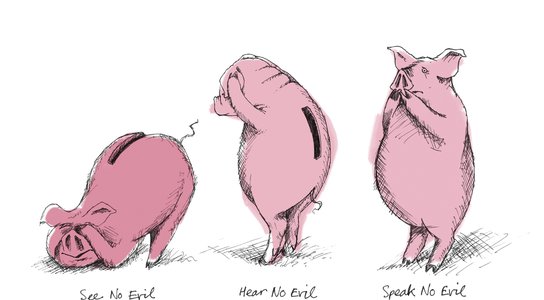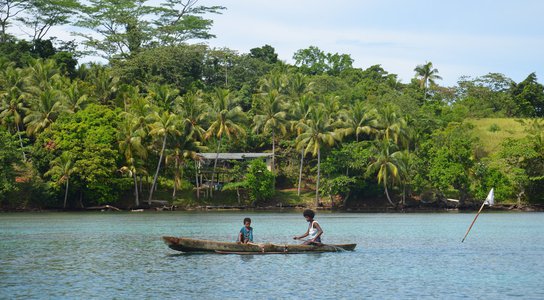HSBC trades heavily on its sustainability policies to customers. But last year we showed it wasn’t walking its talk by banking Sarawak’s notorious logging and palm oil companies. Our good friend Bill Oddie puts it better than we can:
As he points out, HSBC’s forest policy was riddled with loopholes that allowed the bank to tell customers one thing and do the opposite. Bill drove this message home at HSBC’s AGM in May last year.
In response, the bank announced it was reviewing its forest policies. This was a step in the right direction, but ten months later it’s yet to publish what changes it’ll make. If it wants to be the leader it claims to be, it should scrap a policy that plainly hasn’t worked and become the first big bank to commit to zero deforestation lending. HSBC is one of world’s biggest lenders to logging and palm oil companies, so such a move could be a game changer for forests.
While it’s been stalling, against a backdrop of huge forest fires in Sumatra, some of the biggest traders and consumers of palm oil have begun pledging to implement “zero deforestation” policies. They include the world’s biggest palm oil trader Wilmar, and two major consumers, L’Oreal and Kellogg’s.
These welcome commitments suggest that companies increasingly understand they must go beyond the low standards set out under the Roundtable on Sustainable Palm Oil (RSPO). They are right.
Under current RSPO rules, you can clear natural forest for plantations, disturb peat land (unleashing lots of greenhouse gases) and spray your crops with toxic pesticides like Paraquat, linked to organ failure and Parkinson’s disease in plantation workers. None of this is good for people or planet, but the scheme allows companies to pay lip service to sustainability.
If Wilmar, L’Oreal and Kellogg’s are serious about stamping out deforestation, they’ll need to go beyond weak voluntary certification standards and undertake robust auditing of their entire supply chains to make sure they aren’t linked to deforestation or peat land damage.
HSBC claims it doesn’t have the expertise or resources to do these kinds of field checks, to make sure its clients are complying with its policies. But if it is at all serious about living up to its PR claims, it must – it’s simply not possible to know what a company is really doing in a tropical forest from a desk in London.
The bank also suggests that by introducing stronger standards than certification bodies like RSPO, it would undermine them. The new commitments by these multinationals give lie to all that; they are members of RSPO and will use it as a minimum standard, but recognise its obvious deficiencies too.
The fact that HSBC took on such famously nasty companies in Sarawak, like Shin Yang and Sarawak Oil Palms, while sitting on the board of the RSPO, highlights major flaws in the scheme’s effectiveness. HSBC clients that illegally took people’s lands and devastated the region’s forests could not have done so without the loans and support provided by HSBC. The argument that these companies could have just switched banks is not justification for HSBC to throw its own policies out the window. It also fails to recognise the unique services that big international banks like HSBC provide.
Unfortunately, positive steps from some important traders and manufacturers aren’t going to stop logging and palm oil companies stripping the world’s remaining rainforests. We are losing 50 football pitches worth of forest every single minute – banks and the financial support they give is the hidden driver of this destruction. It won’t stop until they stop pumping money in without knowing or caring how it’s being used.
Forthcoming research by Global Witness will look more deeply into who is financing the world’s worst companies, and how the reality on the ground differs from the PR. Watch this space.

